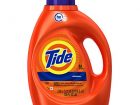The New York Post reports that Amazon and Apple Computer are in discussions regarding offering Apple's iTunes Music Store selections to Amazon customers. This would greatly expand the audience for iTunes Music Store while adding further value and convenience to purchasing music online from Amazon.
Reportedly Apple is working on plans to offer its iTunes Music Store to Windows users through its rumoured Windows version of iTunes. While all of this is still speculation and hearsay, it begs a number of considerations.
For example, the AAC codec that Apple uses in iTunes Music Store brought two primary advantages to Apple and its customers — both the artists and music listeners. First, at a 128k the sound quality is significantly better than music encoded using the MP3 compression at the same bit rate. Second, the AAC encoder offers Apple, artists and the record companies better DRM (digital rights management – copy protection) options than MP3. (download this pdf file for an excellent document explaining MP3 and AAC)
However, in order to use the iTunes Music Store and to actually listen to AAC encoded music, users had to update to the latest version of QuickTime (6.2) which supports AAC. As far as I know, today the only widely distributed codec capable of playing AAC encoded files is QuickTime. This issue has surfaced recently for other home entertainment products that ultimately bring a bit of reality of the digital hub/digital lifestyle that Apple is so fondly promoting. The first is TiVO and it's home media option. The second is a niche player called Slimp3. Both these products allow streaming of music stored in iTunes to a home entertainment system. That means you could store music files on your computer but listen to them in your surround sound system in your living room, for example. But both of these 3rd party products don't support AAC — yet.
And while QuickTime is the second most used “audio/video player” on the web, it has a small window of opportunity to gain switchers from the other primary competitors, RealPlayer and Windows Media Player, if it can expand its audience beyond the core Apple iTunes users. I'm confident that both Microsoft and RealNetworks are considering the inclusion of the AAC codec in its players. And I'm sure each could be nimble and quick in releasing updating versions, I think that if Apple can close a deal with Amazon, release its Windows version of iTunes and the iTunes Music Store and even negotiate a similar deal with AOL, Apple and its music offering might be flanked Trojan horse Windows users will happily let into their domain.
Macintosh Blogs: switchblog | MacNetJournal | Daring Fireball



